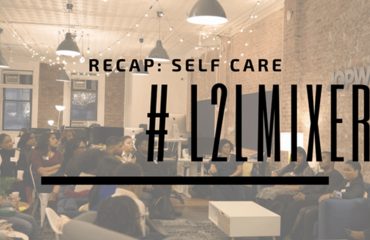LinkedIn Convos: How to Explain Your Job History
After being open to my past experience with job hunting, I decided to share my story on Levo.com. Several readers extended their empathy with me as they too have experienced something similar in their pursuit for a career fit. I received a LinkedIn message about how to explain your job history to hiring managers during an interview:
Hi Brittney,
I have not related more to any other articles I have read during my job search process than your piece on going on 100 interviews before you find your best fit. You could not have put it more perfectly: There were times I would pretend to be a good fit for a team out of desperation, when I knew in my heart that the job or the company wasn’t right. Don’t do this” This describes my current situation to a T. I joined an “up and coming” firm where I was working in a stressful environment and unfortunately I was not able to leave before they told me it just wasn’t the best environment for me. I am now presented with the opportunity to start fresh at a large agency as an intern for a company that I have always wanted to work for. I would SO much appreciate any insight you may have on how to explain in an interview why you have hopped around before finding a better fit at a new agency. This can often be the elephant in the room on an interview and I want to make sure I am describing the situation in the most convincing and honest way. Any advice you may have would be SO helpful as I am preparing for my dream interview next week.
As a 20-something in the workforce, it’s common for us to have multiple job positions, according to FiveThirtyEight. Coined the “job hopper” generation, Millennials are currently the largest demographic in the workforce and hiring managers are adapting to the new-age employee. We are the generation that wears multiple hats as we adapt to the “gig economy” where many roles have turned into contract positions that limits the opportunity of the stability of yesteryear.
Millennials don’t stay in a position longer than two years in comparison to Baby Boomers who stay at one job for an average of 7 years. Our parents had the luxury of working for companies that offered a sense of loyalty that is lacking in employers today. According to Recruiter.com, “Today’s employers, are far less loyal to their employees than the companies of yore. It makes sense, then, for today’s employees to be job hoppers: if their employers aren’t loyal to them, why should they be loyal to their employers?”
Although it’s been debated on whether it’s unfavorable and unattractive to hiring managers if a prospective employee has worked at multiple companies, CNBC suggests there are some benefits to hopping around. “[Job hopping] is a great way to boost your salary, expand your skill set and build your network if you do it smartly,” stated the publication. Millennials explore other employers for several reasons. Some leave for pay increases and often times it has to do with limited foreseen potential to advance or not feeling like the job is a good fit for their career goals or lifestyle.
One thing to remember is if your job history concerned a potential employer than they wouldn’t have called you for the interview.
Also, be reminded that it’s common to be asked why you decided to leave certain jobs. My mentor gave me some great advice when tackling this difficult question. Here are my suggestions for answering this question without revealing too much about your negative relationship with that employer.
1.Be Positive. Remain positive while answering questions on your job history and why you are planning to leave your current role. Identify the positive attributes from your past experiences and what skills you’ve gain. Use that to express how you can take your skill set to the next level in the role you are interviewing for. Tell the hiring manager how your past experience has prepared to be an asset to their team.
2. Keep your career goals in mind. When discussing your reasons for wanting to leave your current job, make clear the goals that you have for your career. Those goals should align with the position that you are interviewing for and mention how the role will help you achieve those goals. For example if your goal is to become a manager and oversee multiple social channels for healthcare brands and your current job does not allow you to do this then mention this and how their company will align with your personal goal.
3. Utilize what attracts you to the role to counter why you want to leave your current position. Focus on three things that attract you to the position you are applying for. What are you looking for in your next role that your current job doesn’t provide? Are you looking to work for a smaller/larger company; Is the scope of your current role narrow leaving no room for growth; are you looking for a collaborative, cultivating and contributing space where your ideas and suggestions are considered and implemented? Mention what you are looking for and how your current employer does not offer those opportunities.
Having a clear understanding of what your career goals are, what attracts you to the company you are interviewing for, and understanding the role you are applying to will help you confidently get through your job history.
Don’t spend too much time on this portion of the interview. You want to make sure you have enough time to sell your strengths and promising attributes to your prospective employer.
What are some ways you explain your job history to prospective employers? [/vc_column_text][/vc_column][/vc_row]





